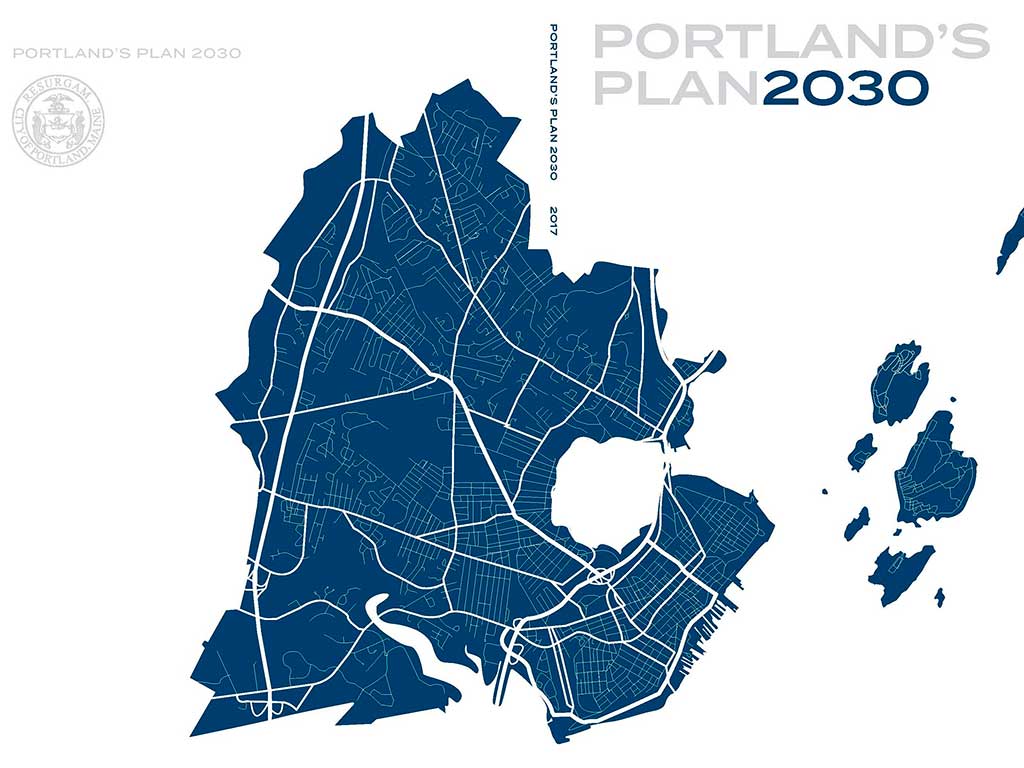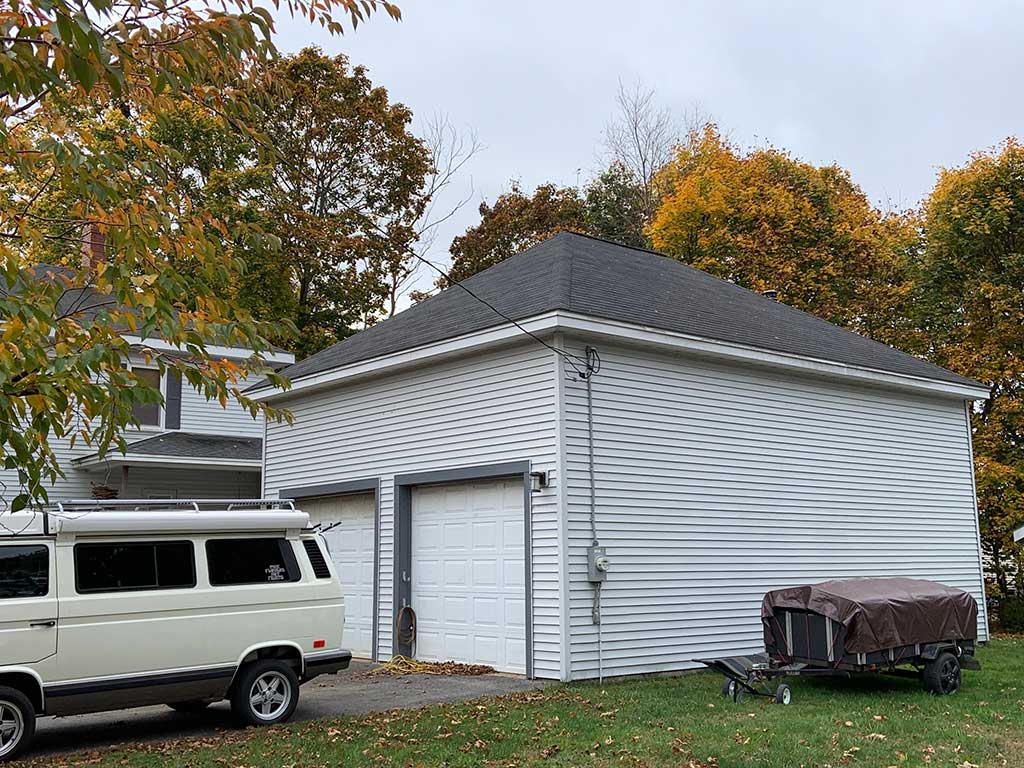
Reader Opinion
By Zack Barowitz
Until recently, there has not been much conversation about how land policy is used as an instrument of white supremacy nor the violence and economic harm that it causes to African American and other disadvantaged groups. But when Donald Trump tweets out to “suburban housewives of America” that Biden “will destroy your neighborhood and your American Dream,” he is playing on a long history of racial segregation that has been codified in our land use ordinances. Sadly Portland is no exception. (The good news is that we now have an opportunity to begin to right some of these wrongs–but more on that later.)
We see evidence of this history locally in the disappearance of African-American communities in Munjoy Hill and the West End (now called St. John Valley). The demolition of Union Station Plaza, which was the employment center for African Americans, paved the way for the demolition of African American homes for the building of I-295. The construction of I-295 likewise corresponded to the depopulation of Portland, as white families moved to the suburbs and became commuters. The chief lobbyist involved in the American Highway Act recalled that local officials across the county welcomed the building of urban highways “to get rid of the local ‘[n-word]town.'”
While policies of racial segragation and discrimination are unconsitutional, they live on to this day. A good source of examples may be found in the land use (or “zoning”) code of any municipality.
These policies include such innocuous sounding terms as lot size, setbacks, parking requirements, historic designations, height limits, design standards, use restrictions, household definitions, etc. They are reinforced by tax assessments (higher for homes in black neighborhoods), real estate appraisals (lower for black-owned homes), “rent to own” schemes, and public housing policies that require the poor to remain poor in order to maintain their housing.
These policies have no justifiable rationale but are nevertheless taken for granted as normative when in fact this is not normal. As a result, the wealth-gap between African-American and white American is 90%, far in excess of the already sizable income gap.
Fortunately, Portland has the opportunity right now to begin to right (some of) these wrongs with the rewriting of its land use code: the ReCode is the implementation of the 2017 Comprehensive Plan.
The first phase of the ReCode is in front of the city council. Sadly, the city council is not considering the elimination of single family zoning or setting maximum parking requirements, but they are looking at two seemingly mundane but important aspects of the code: Parking Requirements and so-called “in-law apartments” or Accessory Dwelling Units (ADUs). While some positive charges have been proposed, the council can amend the recommendations and make the new ordinances have an impact.
For example, they should remove suburban parking standards for all uses located within ¼ mile of transit corridors (the current draft proposes to remove them only for multi-family housing). Parking requirements drive up costs, erode walkability, and dramatically reduces the square footage of buildings in favor of large parking lots. And for new housing outside of the 1/4 mile radius of transit, off-street parking directly in front of the property should count toward the requirements.
Anytime there is a policy that favors homeowners over renters–or single family vs multi-unit–that policy directly favors rich over poor; white over black; and old over young. As such, the recommendations for ADUs should be amended in the some of the following ways:
- Remove the current owner occupancy requirement that a house that has an ADU can not renter-occupied. This is clearly discriminatory.
- Remove the square foot limitation for ADUs created within existing buildings. The square footage will be unnoticeable to anyone but the residents.
- Allow 3 ADUs per property in no more than 2 structures. This might seem like a lot of new units (which is of course a good thing) but if you have a big house with a large 2-car garage you can add an ADU in the main house and convert the big garage into two more units.

As a long term goal, City officials should work to read through the entire code to identify and eliminate those policies that are designed to limit housing and favor people of greater means and lighter skin over the poor and people of color.
To find out more about the Portland ReCode check the blog at yimbyportlandme.com
Zack Barowitz is a Portland resident. He serves on the steering committee for Portland Yimby.






1 Comments
Pingback: Winston Lumpkins: Making the city safe, easy and comfortable for everyone to travel - The West End News